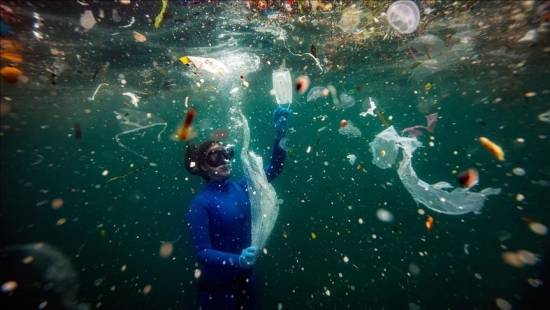Global plastic waste is set to almost triple by 2060, with around half ending up in landfills and less than a fifth recycled, according to a new report released on Friday.
The Organization for Economic Co-operation and Development (OECD) estimates that global plastics consumption will rise from 460 million tons in 2019 to 1,231 million tons by 2060 “in the absence of bold new policies, a faster rise than most raw materials.”
“Growth will be fastest in developing and emerging countries in Africa and Asia, although OECD countries will still produce much more plastic waste per person (238 kg per year on average) in 2060 than non-OECD countries (77 kg),” the OECD said.
Plastic waste is expected to surge from 353 million tons in 2019 to 1,014 million tons in 2060, leading to plastic leakage to the environment doubling to 44 million tons a year, while the amount of plastics in oceans, rivers, and lakes will more than triple, according to the report.
“Most pollution comes from larger debris known as macroplastics but the leakage of microplastics (synthetic polymers less than 5 mm in diameter) from items like industrial plastic pellets, textiles, and tyre wear is also a serious concern,” read the report.
The world needs “much more stringent and globally coordinated action” if plastic pollution is to be eliminated, as envisaged by the UN Environment Assembly, said Mathias Cormann, secretary-general of the OECD.
The OECD laid out suggestions on how actions to cut greenhouse emissions “could reduce plastic pollution given the interplay between the plastics lifecycle, fossil fuels and climate change.”
Taxes on plastics, incentives to reuse and repair plastic items, improved waste management infrastructure and increased litter collection rates are among some of the policies recommended to reduce the environmental impacts of plastics.
If implemented, these “concrete policies … could significantly curb – and even eliminate – plastic leakage into the environment,” Cormann added./agencies


